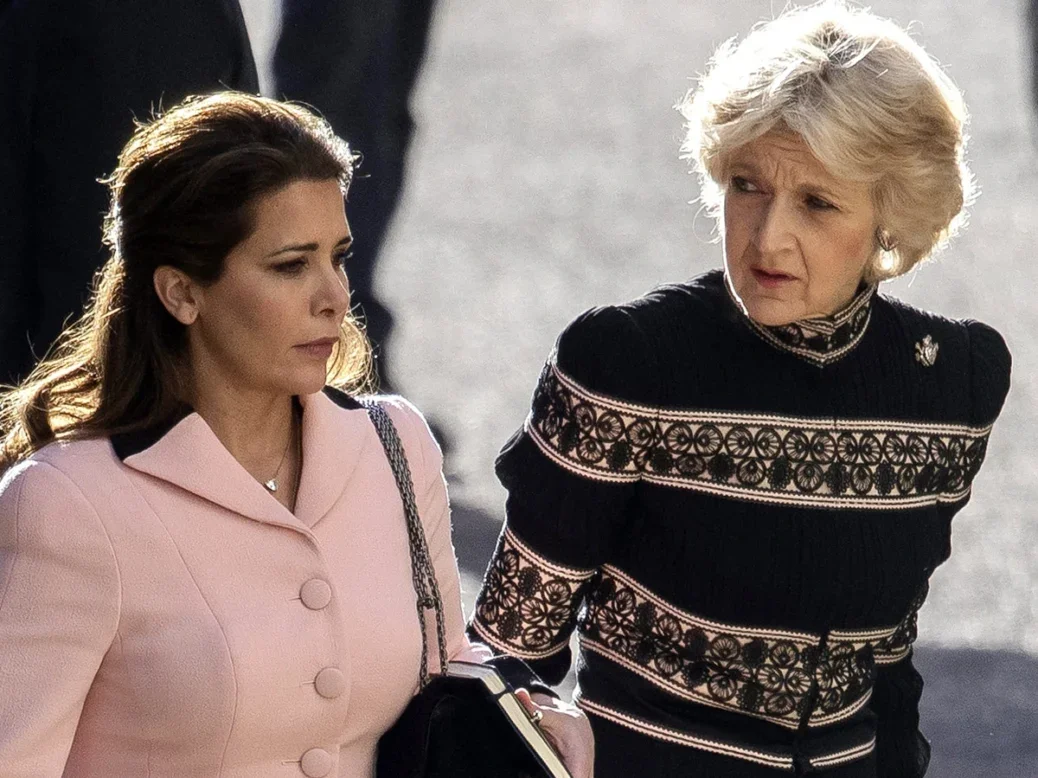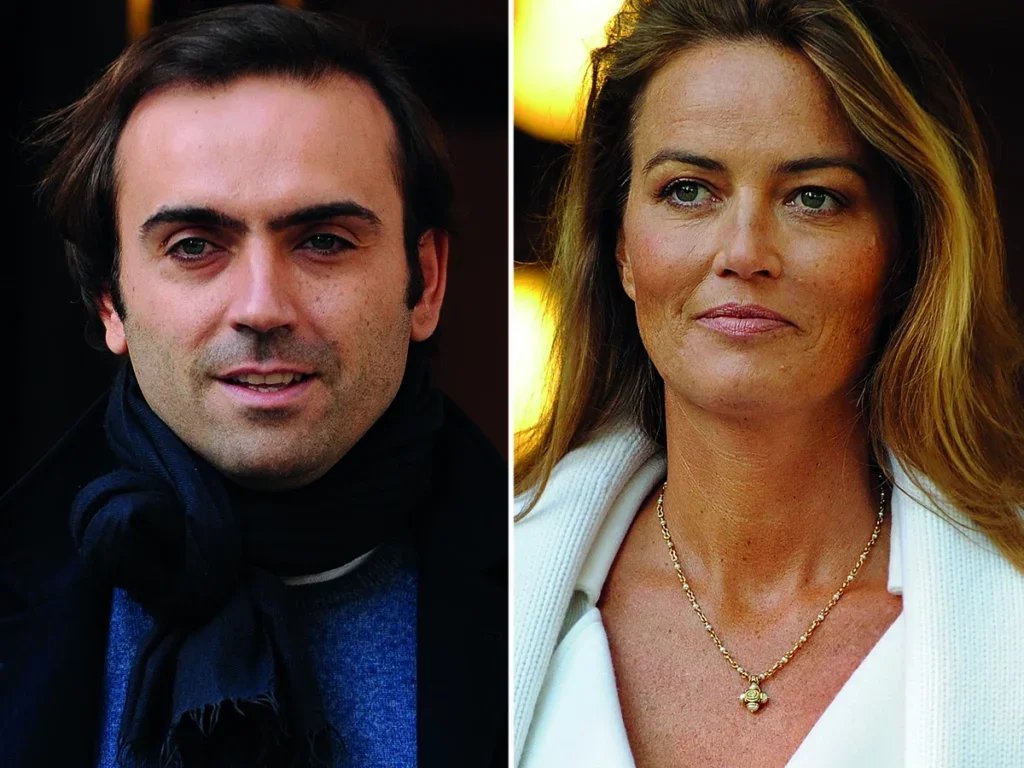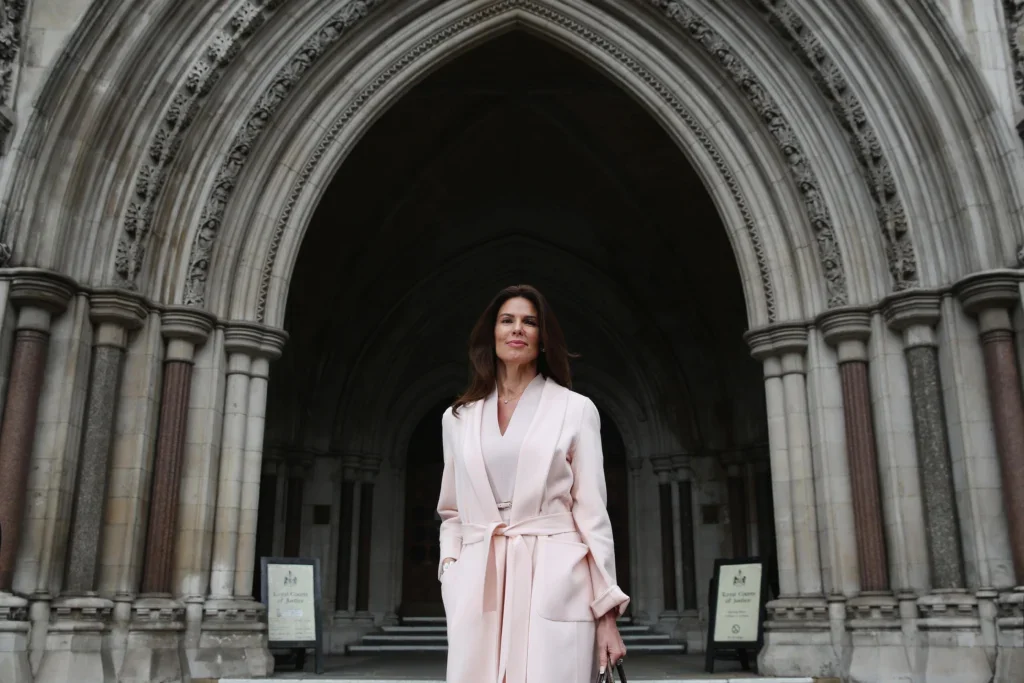
The contentious law on splitting divorcing couples’ cash is once again in the spotlight ahead of a review of the 50-year-old regulations.
A Law Commission inquiry into guidelines on financial provision for ex-spouses was announced in March, as Britain’s top divorce lawyer took public aim at the current legislation in the House of Lords.
Fiona Shackleton branded laws governing financial settlements ‘hopelessly out of date’ in a speech to her peers.
More recently a London High Court judge who oversaw a ‘destructive’ £9 million divorce raised concerns over legal costs ‘beyond any reasonable comprehension’ in a written ruling.
Could London’s reputation as ‘divorce capital of the world’ be under threat from an overhaul of the law? And how would reform work?
The baronesses backing change
Baroness Shackleton admitted she and her colleagues make a ‘fortune from arguing’ because a lack of consistent guidelines and dependence on case law results in excess litigation.
The law is failing to deliver justice for divorcing couples and their children, says Shackleton, who counts the King of England (then Prince Charles) and Paul McCartney among her former clients.
‘There is no use in having a divorce if the money is not sorted out,’ she told the House of Lords. ‘The house has to be sold and the children are caught in the conflict.’
Shackleton’s speech came in support of a long-running campaign spearheaded by her fellow crossbencher Baroness Deech.
Deech, an expert in the ethics of family law, says the UK is ‘lagging 50 years behind nearly every other country in the western world’.
She tells Spear’s that changes to the current 1973 guidelines should focus on four things; ‘certainty; reducing litigation; delivering equality; and [clarifying] prenups.’

[See also: Pensions reforms may ‘drastically impact’ HNW divorce]
Proposed reforms invite praise – and uncertainty
Practising divorce lawyers tell Spear’s that they welcome the movement for reform – with some caveats.
The main danger is that strict rules can actually lead to unfair outcomes.
‘Imagine if there is a rule that someone is entitled to half of the marital assets,’ says Mark Harper – a partner with Hughes Carruthers Fowler.
‘What if one party has a landed estate but doesn’t make any significant money during the marriage?’
‘There may not be any marital assets as such, so the other party ends up with half of nothing.’
In such cases, courts need to be able to look at all circumstances in order to make the right decision.
Divorce lawyer Neil Russell, who represented Boris Johnson in his 2020 divorce from Marina Wheeler and is head of Seddons’ family department, points to a notable example in Deech’s bill.
The draft bill had proposed to cap spousal maintenance to five years – aside from exceptional circumstances.
‘This is a good example of the law being slightly more prescriptive while still maintaining the necessary discretion,’ he adds.
Crucially, it would limit the scope for claimants to argue that they should be supported for many years to come.
[See also: No-fault divorce has triggered a wave of enquiries for top family lawyers]
Uncertainty in the current system
In theory, divorce settlements in England and Wales are governed by the Matrimonial Causes Act 1973.
Assets were divided according to the ‘reasonable needs’ of the financially-weaker party, until a surprising decision by the House of Lords in 2000 led to a new approach that increased the discretion available to judges.
A farming couple from Somerset had spent six years wrangling over how their £4.6 million marital assets from their 30-year marriage should be split until law lords ruled that along with ‘reasonable needs’, courts should keep in mind ‘the yardstick of equality’ when dividing assets.
‘There should be no bias in favour of the money-earner and the child-carer,’ Lord Nicholls said at the time.
Despite the emphasis on equality in White, some parties have since been able to successfully argue for a more old-fashioned approach of so-called ‘lifetime maintenance’.
This is where courts award a large sum to the financially-weaker party on the basis that they have become accustomed to a certain lifestyle.
‘Cases like these are operating perfectly within the law,’ says Deech. ‘But they show how the system encourages excessive demands.’
Instead she says that the law should be updated to limit the scope around ‘lifetime maintenance’ and prioritise the needs of any children involved.
Harper agrees that case law has created uncertainty over time.
‘Over the years, we have seen the development of concepts that would not have been foreseen by the court in White,’ he says.
He points to the case law around so-called ‘special contributions’ – through which the richer party can hold on to the vast majority of assets.
While judges have attempted to set tests for when these exceptional circumstances can be met, the lack of statutory guidance has fuelled litigation.
‘By definition judges don’t have the time or resources to properly consider the long term consequences of their decisions,’ says Harper.
[See also: These are the UK’s largest divorce settlements]
Issues raised by prenups
In 2010, a major decision saw the Supreme Court recognise prenuptial agreements – at least in principle – thereby giving new legal status to prenups in the UK.
The case concerned a divorce between the German heiress Katrin Radmacher and her ex-husband Nicolas Granatino.
Radmacher’s lawyers were able to successfully argue that the court should apply the couple’s prenuptial agreement – limiting Granatino’s access to her wealth.
‘Under the current system, challenging a prenup can lead to long and extensive litigation – particularly for international families,’ says Deech.
That means that a party can use the threat of litigation in order to get their way – even if it means less money for any children involved.

Both the White v White and Radmacher rulings have radically changed how the courts approach divorce law, effectively departing from the 1973 legislation.
Whatever the merits of the decisions, they have also increased the potential for costly litigation as parties battle for the best settlement.
By putting the law around prenups on a statutory footing, with clearer guidelines on when pre- and post-nups apply, parliament can provide comprehensive rules, limiting the scope for litigation.
[See also: Birdnesting: The HNW divorce trend]
An uncertain future
Despite the Law Commission review looming, both Harper and Russell tell Spear’s they don’t believe it will make England less attractive to divorcing HNWs.
‘The biggest pull factor for HNW clients is the huge respect for the integrity of our judicial process,’ says Neil Russell.
Though, of course, if English divorce law begins to look more like its European and American counterparts and HNWs’ chances of a unique settlement in London closes, that might change.
The lawyer driving reform believes London is unlikely to lose its shine for super-rich divorcing couples for ‘several years.’
She describes the upcoming Law Commission inquiry as ‘legislative tinkering’.
‘The whole law needs a proper review,’ she says.
Justice Minister Lord Bellamy said the government considers the Law Commission ‘the most appropriate body’ to carry out a review.
[See also: The Spear’s Family Law index]
Divorces that put UK law to the test
Rakshina v Xanthopoulos
In April, Sir Jonathan Cohen, who oversaw a ‘destructive’ £9 million divorce said use of a court’s time and a businesswoman’s money by her ex-husband had been ‘grossly exorbitant”.
Lazaros Xanthopoulos, the husband of Russian retail executive Alla Rakshina, was able to rack-up more than £4 million in bills – across more than 60 hearings in Russia and England – at his wife’s expense.
Last year, the judge in the case, Mr Justice Mostyn, described the amount as ‘apocalyptic’ and ‘hard to accept even in a conflict between the uber-rich.’
MN v AN
A recent high court decision over a prenuptial agreement in the case of MN v AN saw the wife argue she had been unfairly influenced into signing the contract.
Ultimately the court found that the prenup should be upheld. That the wife would have received significantly more without it was not relevant.
The case provides a reminder of the lack of certainty, as courts seek to reapply Radmacher 10 years on from the written ruling.
Estrada v Juffali

In 2016, the court awarded Christina Estrada, a former model, a settlement of around £75 million on the basis that this met her ‘reasonable needs’.
In court, Ms Strada argued that she should be entitled to £1 million per year from her multi-billionaire husband Sheikh Walid Juffali in order to buy clothes.
She said: ‘I was a top international model. I have lived this life. This is what I am accustomed to.’
Hohn v Cooper-Hohn
In the 2014 case of Hohn v Cooper-Hohn, the multi-billionaire British hedge fund manager Sir Christopher Hohn argued that his ‘special contribution’ should justify a departure from equality when it came to a settlement with his wife of 17 years.
Hohn, who described himself as an ‘unbelievable money maker’, was successful in his claim and his ex-wife Jamie Cooper, with whom he shares four children, was awarded £337 million. Despite not being an equal share, it still ranks as one of the largest divorce settlements in British history.
Mills v McCartney

Baroness Ruth Deech’s draft bill proposes to cap spousal maintenance to five years – aside for exceptional circumstances.
One of the features of the famous 2008 legal battle between Heather Mills and Paul McCartney – aside from Ms Mills pouring water over her ex-husband’s divorce lawyer Fiona Shackleton in court – was the refusal of Ms Mills’ claim for £3.25 million a year in maintenance for herself and the former couple’s daughter.
In the ruling, Ms Mills was awarded a long-term maintenance settlement – although not the £125 million she had wanted.






